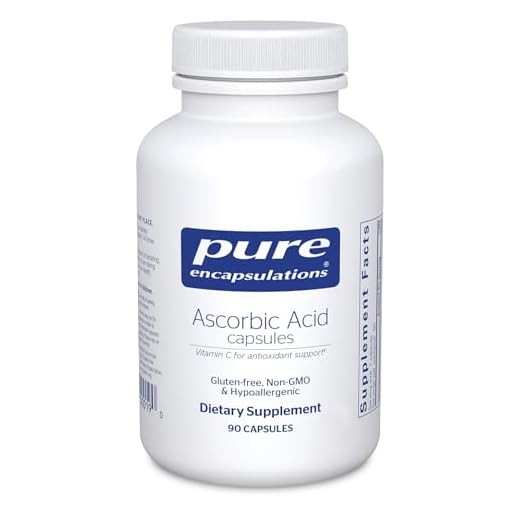







Yes, Vitamin C can greatly aid in wound healing. It's crucial for collagen synthesis, which is essential for tissue repair. By acting as an antioxidant, it helps reduce inflammation and oxidative stress too. Studies show that higher doses of Vitamin C can lead to a dramatic 84% reduction in ulcer size, and it boosts immune function to enhance recovery rates. If you're deficient, it could delay healing and increase infection risk. Supplementing with Vitamin C can lead to better outcomes in wound care. Discover more about how you can effectively use Vitamin C for healing benefits.
Key Takeaways
- Vitamin C is crucial for collagen synthesis, essential for effective tissue repair and healing processes.
- It acts as an antioxidant, reducing oxidative stress and inflammation, which aids recovery.
- Supplementation can significantly improve healing outcomes, especially in patients with chronic wounds or surgical recovery.
- A deficiency in vitamin C can delay healing and increase the risk of infections, emphasizing the need for adequate intake.
- Recommended doses for improved healing can range from 500 mg to 1000 mg daily, particularly in clinical settings.
Importance of Vitamin C
Understanding the importance of vitamin C in wound healing is crucial for anyone looking to enhance their recovery process. Vitamin C, or ascorbic acid, plays a critical role in collagen synthesis, which is essential for tissue repair. As a co-factor in hydroxylating proline and lysine residues in collagen, it guarantees that your body forms strong and resilient connective tissue. Additionally, products like Vitafusion Power C Gummies can provide a convenient and tasty way to boost your vitamin C intake. Without adequate vitamin C, you might experience a deficiency that can delay healing and increase your risk of infections, leading to complications like fatigue and weakness.
To maintain ideal healing, the Recommended Dietary Allowance (RDA) for vitamin C is 65 mg per day for adults. However, clinical studies suggest that supplementation with 1000 mg daily can notably improve healing outcomes, especially in individuals with compromised healing abilities, such as those recovering from surgery. Additionally, vitamin C functions as an antioxidant, reducing oxidative stress and inflammation at wound sites. This creates a more favorable environment for healing and effective wound management. By guaranteeing you get enough vitamin C, you'll enhance your body's natural healing processes and support your recovery journey.
Mechanisms in Wound Healing
Three key mechanisms illustrate how vitamin C contributes to effective wound healing. First, it plays an essential role in collagen synthesis. As a co-factor in the hydroxylation of proline and lysine, vitamin C stabilizes collagen's triple helix structure, increasing tensile strength in healing tissue. This process is critical for proper tissue repair, as adequate levels of vitamin C support collagen production and overall skin health, maintaining skin elasticity and firmness its role in collagen production.
Second, the antioxidant properties of vitamin C help reduce oxidative stress and inflammation. By scavenging free radicals, it protects tissues from damage, creating an ideal environment for wound healing. This contributes to quicker recovery and improved healing rates.
Lastly, vitamin C enhances immune function, boosting the activity of neutrophils and macrophages. These immune cells are essential for clearing debris and fighting infections during the healing process. Adequate levels of vitamin C are linked to considerably improved healing rates, as shown in studies where patients receiving vitamin C supplementation experienced reductions in ulcer size and accelerated recovery.
In contrast, vitamin C deficiency can lead to delayed wound healing and increased susceptibility to infections. Understanding these mechanisms highlights the importance of vitamin C in both acute and chronic wound care.
Effects of Deficiency
Vitamin C deficiency can greatly impair your body's ability to heal wounds effectively. When you lack sufficient vitamin C, your collagen synthesis suffers, which is essential for tissue regeneration. This deficiency can lead to delayed healing, making recovery from both acute wounds, like cuts, and chronic wounds, such as ulcers, considerably more challenging. Additionally, frequent bruising due to weakened blood vessels and dry, rough skin indicating poor collagen production are common signs of low vitamin C levels, highlighting the impact on overall health and healing frequent infections and increased susceptibility to illnesses.
Moreover, vitamin C plays a critical role in your immune function. Without adequate levels, you're more susceptible to infections and complications, as your body's inflammatory responses are compromised. Studies show that after a wound occurs, plasma and tissue levels of vitamin C decrease, further hindering the healing process.
You might notice symptoms like fatigue and weakness, which can complicate your recovery from surgical procedures or injuries. The importance of vitamin C in fibroblast activity and collagen deposition cannot be overstated; it's essential for the formation of new tissue. In conclusion, vitamin C deficiency not only affects collagen synthesis but also delays healing and weakens your immune system, making it imperative to maintain adequate vitamin C levels for ideal wound healing.
Research Findings
Recent research underscores the crucial impact of vitamin C on wound healing, revealing that supplementation can lead to remarkable improvements in recovery outcomes. Studies show that vitamin C supplementation, particularly in the form of ascorbic acid, considerably enhances healing rates, especially for pressure ulcers. One study noted an impressive 84% mean reduction in ulcer size after administering 500 mg of ascorbic acid (Taylor et al., p < 0.005). In a pilot RCT, patients receiving the same dosage for foot ulcers had higher healing rates (p = 0.041), with no amputations occurring in the vitamin C group, compared to four in the placebo group.
Vitamin C's critical role in collagen synthesis is essential for the wound healing process. When you're deficient in this nutrient, you may experience delayed healing, increased infection risk, and complications like scurvy. Clinical trials have also indicated that combining vitamin C with other nutritional supplements can lead to considerable reductions in wound size (Yarahmadi et al., p = 0.019). However, the lack of baseline vitamin C testing in many studies suggests a need for further investigation to fully understand its role in promoting new tissue formation and effective wound healing.
Clinical Applications
When considering clinical applications for wound healing, incorporating adequate vitamin C supplementation can greatly enhance patient outcomes. Vitamin C, also known as ascorbic acid, is essential for collagen synthesis, which stabilizes collagen's triple helix structure. This process is vital for effective wound healing, particularly in patients with chronic wounds.
Clinical studies have shown that a daily supplementation of 1000 mg of vitamin C can lead to rapid recovery and improved healing rates in those with complicated wounds. It is significant to recognize that many surgical patients often experience subclinical vitamin C deficiency, with approximately 36% showing ascorbic acid levels below the reference limit. This deficiency can negatively impact their healing outcomes.
Research suggests that maintaining adequate vitamin C levels not only supports collagen synthesis but also enhances immune function, reduces inflammation, and minimizes oxidative stress. These factors collectively contribute to better wound healing. Integrating vitamin C supplementation into wound care protocols is increasingly supported by evidence, particularly for patients dealing with pressure ulcers and other chronic wounds, leading to significant improvements in overall healing outcomes.
Recommendations for Supplementation
Integrating vitamin C supplementation into wound care protocols can greatly enhance healing outcomes. For ideal wound healing, consider doses between 500 mg to 1000 mg daily, especially for patients dealing with pressure ulcers or recovering from surgery. It's crucial to assess vitamin C levels in at-risk individuals since deficiencies can impair collagen synthesis, a critical component for effective healing processes.
While the Dietary Reference Intakes (DRI) recommend a daily allowance of 70 mg for women and 90 mg for men, higher doses may be necessary in clinical settings. If you notice inadequate dietary intake or signs of metabolic stress, supplementation could be particularly beneficial.
Clinicians should prioritize vitamin C for patients with existing deficiencies that might impede recovery. Regular monitoring and adjustments based on individual needs can enhance the healing process and minimize complications associated with wound care. By ensuring proper vitamin C levels, you can greatly support and expedite recovery in patients facing challenging healing scenarios. Consider integrating these recommendations into your wound care routine to boost overall outcomes and foster quicker healing.
Conclusion
In summary, vitamin C is a powerhouse for wound healing, playing an essential role in collagen production and tissue repair. Its deficiency can slow down recovery, making it imperative for ideal healing. Research backs up its benefits, showing that supplementing with vitamin C can speed up the process considerably. So, don't underestimate this simple vitamin—it's like a superhero for your skin! Consider adding it to your routine to support your body's healing journey.




